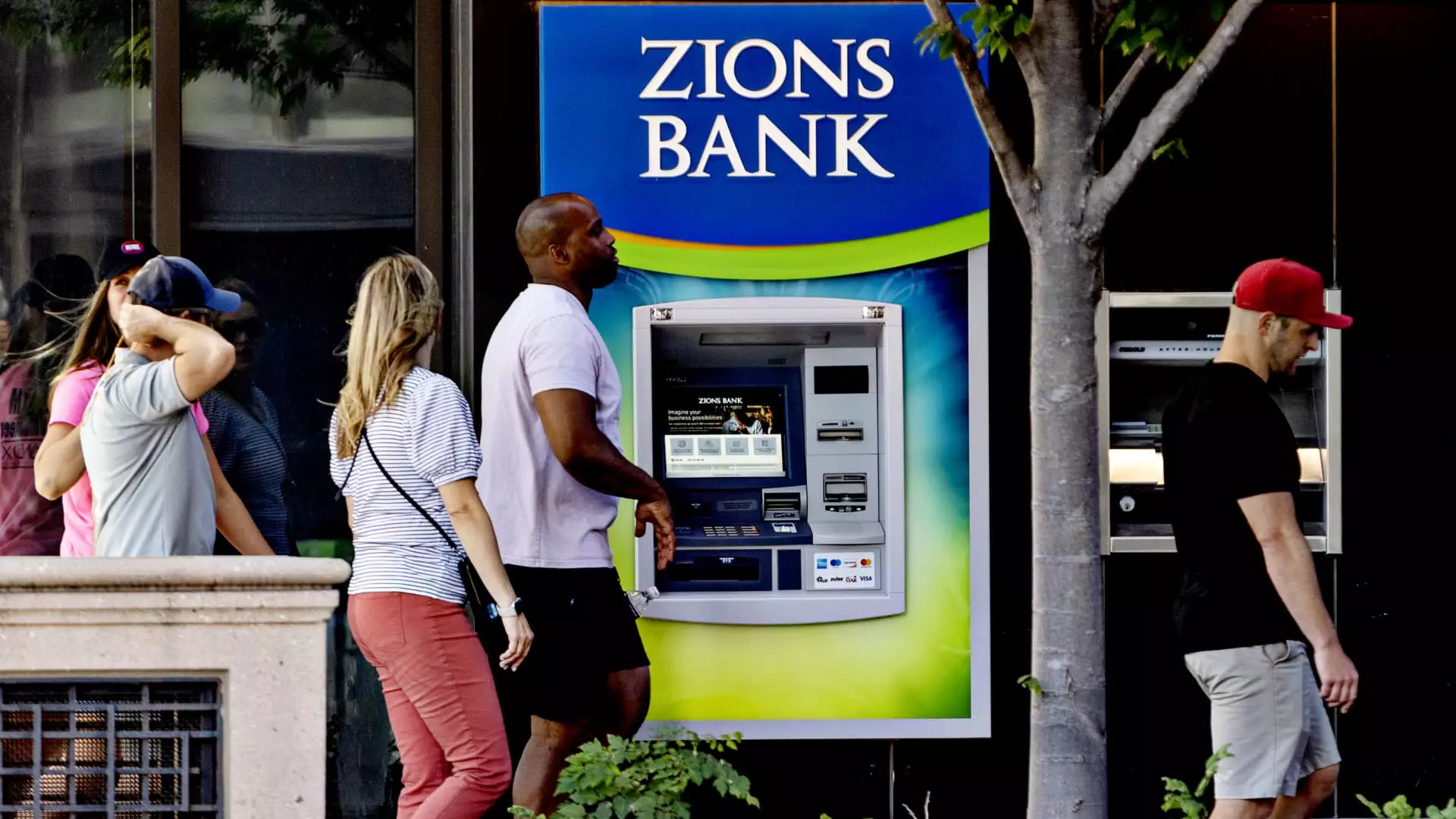In the financial world, the quarterly earnings season often acts as a barometer for company performance and broader economic health. Unfortunately, some companies have served up dismal results that not only fell short of expectations but have also left investors reeling. Key players like BOK Financial and Zions Bancorporation saw their stock prices plunge due to earnings that contradicted Wall Street’s optimistic forecasts. This kind of volatility is alarming, especially in an era where financial analysts’ reputability seems to hang by a thread. When BOK reported earnings per share (EPS) of $1.86, shy of the $1.99 consensus, the take-home message for investors was stark: expectations can often lead us astray.
The Turbulent Waters of Banking
BOK and Zions Bancorporation are emblematic of a broader trend within the banking sector, which seems to be under siege from various headwinds. Zions experienced an almost 6% drop in share price after reporting an EPS of $1.13, significantly underperforming against the $1.18 analysts anticipated. This situation raises questions about the banks’ ability to manage net interest margins effectively and adapt to the current economic climate, which is increasingly fraught with uncertainty. It’s not merely a quarterly hiccup; it signals potential operational inefficiencies and market misjudgments that could resonate through the coming months. Investors must adopt a discerning eye, for the ripple effects of these disappointing figures could extend well beyond a single quarter.
Tech Surge: A Spark in the Dark
Amidst the gloom that envelops traditional banking, technology firms like Calix have broken through with astonishing results. Calix’s stock saw a meteoric rise of 14% following an EPS of 19 cents, exceeding expectations. Such figures underscore the potential for innovation and growth within tech sectors that continually deliver better-than-expected outcomes. This is the kind of performance that investors long for; in stark contrast to the banking sector, where growth seems stagnant. Calix’s ability to provide enhanced guidance further brightens its outlook, prompting investors to reconsider where to allocate their resources in an increasingly digitized marketplace.
Accounting Concerns and Management Shakes
Conversely, MongoDB faced challenges that are alarming for its shareholders. An unexpected resignation of its interim CFO set off a chain reaction that caused a 2% slide in its shares. This raises crucial questions about the stability of leadership in tech companies—a sector often touted for its resilience. As investors, the volatility around leadership transitions can be a red flag, suggesting that companies unable to maintain a steady hand may struggle in times of uncertainty. Stability in management often correlates with stability in stock price, and those connections are more vital than ever.
Declining New Business: The Medpace Scenario
Medpace Holdings reflects another aspect of this turbulent landscape, with a staggering 6% decline in shares after reporting a drop in new business awards. A 19% fall compared to the previous year is shocking for a company that thrives on ongoing projects and development initiatives. An inability to secure new business can dim the prospects of future growth, serving as a cautionary tale for investors invested in clinical development spaces. The stark realization? In today’s market, even the behemoths aren’t immune to the vulnerabilities inherent in their business models.
Investors are in for a rocky ride, and only the savvy will survive the turmoil that volatile earnings reveal.

